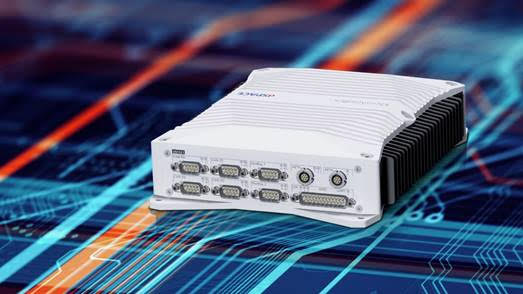New dSPACE MicroAutoBox III variant with a comprehensive range of bus and network interfaces
In the development of self-driving and electrically-powered cars, the connectivity requirements for in-vehicle prototyping systems are constantly growing. This is why dSPACE offers its MicroAutoBox III in-vehicle prototyping system with a high number of channels and an extended range of bus and network interfaces. With the addition of the new DS1521 I/O board variant, the system is particularly suitable for communication-intensive developments that take into account the centralization of the E/E architecture, among other things.
Typical applications for the MicroAutoBox III with the new DS1521 Bus and Network Board include intelligent gateways, running supervisory controllers to control other ECUs in real-time via buses and networks, and designing central control units with service-based Ethernet communication. To ideally address these applications, the DS1521 Bus and Network Board provides eight CAN FD channels, three automotive Ethernet ports (100/1000BASE-T1), two FlexRay connectors (A/B), three LIN channels, and additional UART, digital, and analog interfaces. For particularly communication-intensive applications, the MicroAutoBox III can also be equipped with two DS1521 boards, which results in doubling the number of the above-mentioned interfaces. A combination with other MicroAutoBox I/O boards is also possible.
The system is configured using the ConfigurationDesk implementation software, including the integrated Bus Manager. This allows for configuring the bus communication based on the latest standards and protocols, such as AUTOSAR (ARXML), FIBEX, DBC, or LDF. For integration into an existing vehicle electrical system, current AUTOSAR features such as secure onboard communication (SecOC), end-to-end protection, and global time synchronization (GTS) are also supported on all relevant bus systems, including service-based Ethernet communication (SOME-IP).

